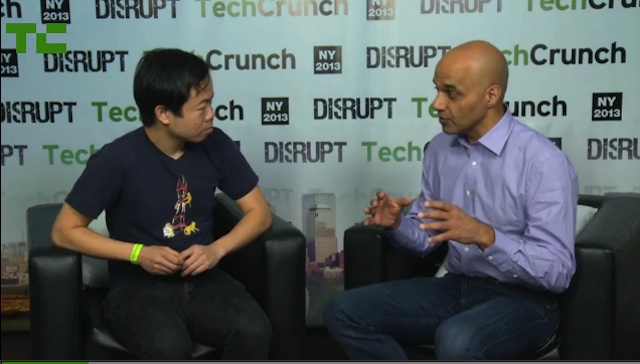SideCar co-founder and CEO Sunil Paul was part of what may have been the most spirited and feisty panel at our Disrupt NY conference earlier this month. Sharing the stage with Hailo CEO Jay Bregman (I’ll be posting an interview with Bregman later) and NY TLC Deputy Commissioner Ashwini Chhabra, Paul positioned his ridesharing startup as an organization standing up for innovation and choice in the face of regulation.
I interviewed Paul backstage, where I asked if he’d be able to find common ground with the regulators.
“I think, actually, many of the public servants that work in those organizations, they do want to serve the public,” he said. “I think the system sometimes keeps them from being able to do that, but their personal desire is to do a good job and serve the public. The public is definitley served when we’ve got more choice, when systems are safe, and they’re fair.”
Naturally, Paul argued that SideCar’s system is both safe and fair, thanks to the safeguards enabled by smartphones and social media. He added that SideCar itself shouldn’t be regulated on a local level, because it’s just an information provider and matching service — it doesn’t actually dispatch drivers:
That might sound like a subtle difference [but] that’s the difference between a Match.com and arranged marriage. So I think in a dispatching system, regulators … should have more control simply because the driver doesn’t know where you’re going, the passenger has no choice, prices are set. In a matching system like ours, there’s complete freedom, the destination’s required, drivers and passengers have a choice over who to give a ride to, and there’s no set price.
We also talked about SideCar’s difficulties in New York, where two of its cars were impounded. In response, SideCar is asking supporters to send messages to politicians via social media. (More details here.) That might not seem like a particularly effective strategy, but Paul seemed confident that things will change if politicians believe that’s what people want.
“If people take action, politicians will listen,” he said. “Regulators may not listen, but politicians will listen, and ultimately politicans are the ones that will make the rules.”
